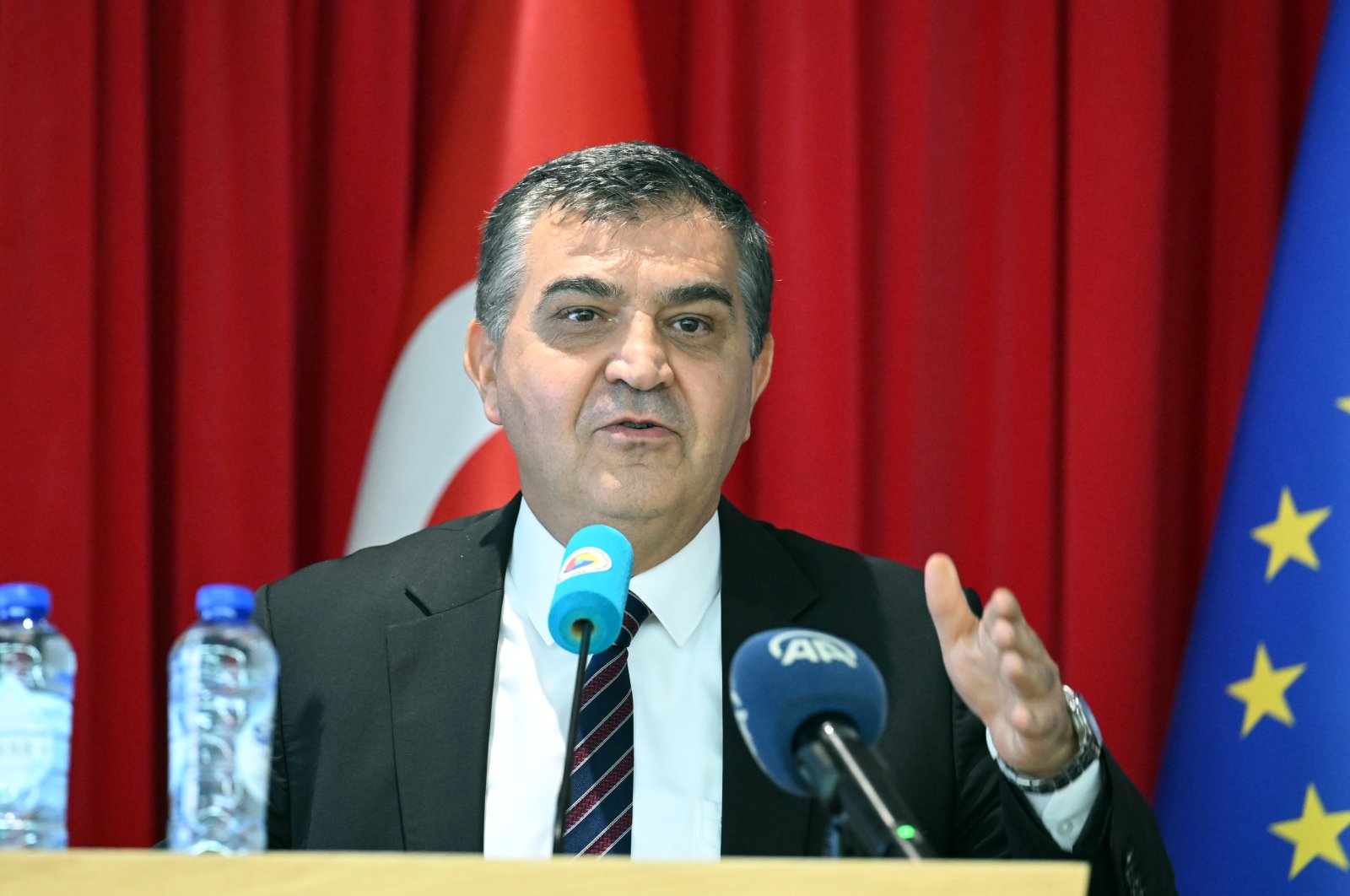
Strategic relations with Ankara are pivotal to managing irregular migration, the EU commissioner said, reiterating the bloc's commitment to assisting refugees
The European Union is determined to bolster dialogue and cooperation with Türkiye and support its efforts to manage migration, the bloc’s commissioner for enlargement said Tuesday.
Oliver Varhelyi spoke at a high-level panel on EU-Türkiye relations, current trends, future perspectives and common challenges in the field of migration management organized by Türkiye's Permanent Representation to the EU in Brussels.
Varhelyi, who started his speech by congratulating President Recep Tayyip Erdoğan on his election victory in May, said the EU has "great hopes" for working with the new government in Türkiye in the coming years.
He said the EU looks forward to continuing to establish strategic relations with Ankara.
"We need each other for our common prosperity and stability. We need each other for the benefit of our people," he added.
"The EU is confident that Türkiye will continue to contribute significantly to this as a candidate country, an important regional partner, a key NATO ally and a mediator between Ukraine and Russia.”
He underscored that Türkiye has played "a pivotal role" in global food security through the Black Sea Grain Initiative and "we hope this initiative continues."
"In the coming period, the EU will contact the new Turkish government to discuss the current outlook of our partnership," he noted.
Emphasizing that the issue of migration is an important challenge, Varhelyi said the EU's fulfillment of its commitments and its partnership with Türkiye politically, financially and operationally should yield tangible results.
He said the EU will continue to support Türkiye, which hosts the largest refugee population in the world.
"We are also aware of the significant migration pressure Türkiye faces, particularly along its eastern and southern borders," he said, noting that the bloc is committed to continuing to significantly assist refugees and host communities in the country.
Ankara and the EU signed a migration in March 2016 during the height of the refugee crisis when the Syrian civil war was uprooting millions who traveled in scores through Türkiye on a "journey of hope” to reach Europe.
The agreement contained six key points: The reinvigoration of Ankara's EU ascension process, modernization of their customs union, the revival of high-level dialogue, visa liberalization for Turkish nationals, cooperation in managing migration flows and steps in counterterrorism.
Türkiye has long complained that while it upheld its end of the deal, the EU did not keep its pledges, including on visa liberalization, while Turkish officials often call on the bloc to "act with a sense of joint responsibility and reduce Türkiye’s migration burden.”
‘Holistic approach’
Türkiye’s Deputy Foreign Minister and Director for EU Affairs Faruk Kaymakçı also reiterated the need for the bloc to adopt a "holistic approach” to resources and countries sitting on migration routes, as well as host destinations, in order to curb irregular migration.
The issue is a shared trial for the world and Europe, Kaymakçı told the same event on Tuesday.
"There is a need for a strategy based on fair responsibility and share of the burden for source, transitionary and host countries,” Kaymakçı explained and stressed that cooperation efforts must begin from not EU borders but the Türkiye-Iran-Iraq-Syria border that makes up Europe’s eastern and southeastern borders.
Recalling the voluntary return of some 560,000 Syrian refugees from Türkiye so far, the Turkish diplomat emphasized that adapting between the EU and Türkiye joint policies that encourage voluntary, safe and dignified returns is a requirement of the March 18 Agreement.
Speaking alongside Kaymakçı, Dr. Savaş Ünlü, the head of Türkiye’s Migration Management Directorate, pointed out that host countries should be the primary focus to achieve a permanent solution.
"The main elements of fighting irregular migration are strengthening border security measures and increasing the capacity of domestic captures and returns,” Ünlü said.
